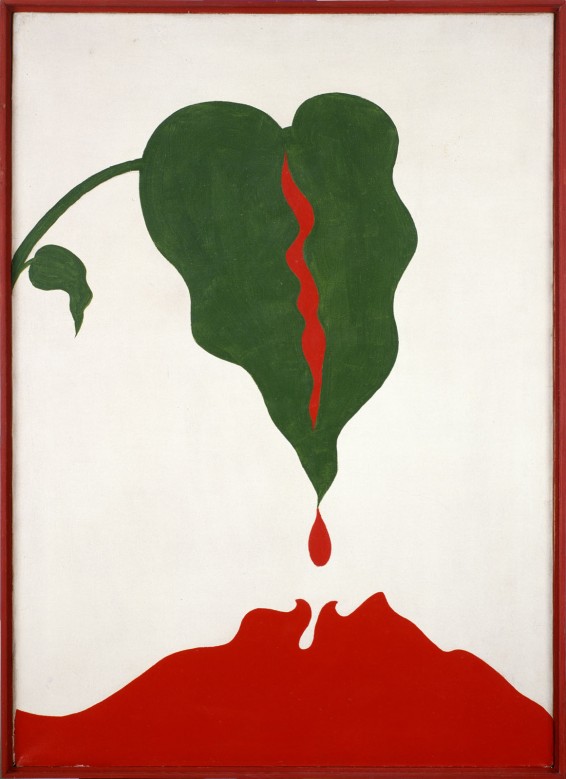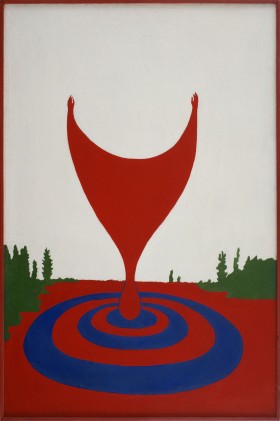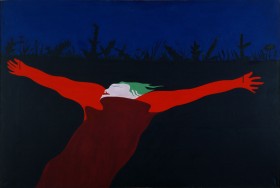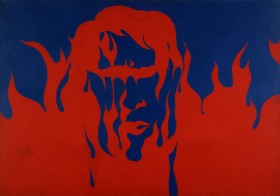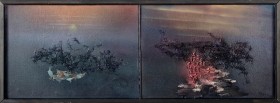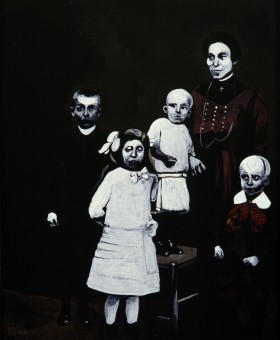Human from Nature
- type of object: painting
- date: 1974
- material/technique: oil on canvas
- dimensions: 90 x 60 cm
- inventory No.: M-542
- image licensed under: CC BY-NC-ND 3.0
Jerzy Ryszard ‘Jurry’ Zieliński rejected textural solutions stemming from post-impressionism and dominant at the Warsaw Academy of Fine Arts while still studying with Jan Cybis. Art critic Wojciech Krauze wrote that Zieliński and Jan ‘Dobson’ Dobkowski — founders of the Neo-Neo-Neo group in 1967 — ‘painted against their own professor, but also against the ossification of the Academy, against the whole world’. The rejection of artist names and all the existing trends in art — the so-called ‘isms’ — was the result of a countercultural worldview. In the meantime, the hippie movement was flourishing in America, and both artists drew from in a belief in friendship and peace among people, the feeling of absolute freedom, and a provocative but also joyful attitude towards their surroundings.
Zieliński treated space in his paintings conventionally, at times eliminating it completely. He filled the surface of the canvas with large flat fields of smoothly applied intense colour, reminiscent of poster aesthetics. He reduced the depicted objects to simple artistic signs, which were formally clear, but ambiguous in terms of the content they carried. Metaphorically, they conveyed reflections on the condition of contemporary humanity.
In the painting Human from Nature, the shapes were painted in a schematic and unrealistic way but are easily recognisable. A red drop falls from a green leaf into the parted lips of a man whose face is depicted in profile. The drop is a portion of energy that slakes his thirst. The work represents the inextricable link between humanity and nature and is an expression of vitalism — the belief that there are immaterial vital forces that transcend physical and chemical descriptions. This message is associated with the beginning of ecological reflection in the hippie generation, with an attitude of a critical approach to technical civilization, and concern for the state of the environment. As Zieliński claimed, ‘I am one part of the human set. And this obliges me to be responsible for this world, from the first pain to the painful end’.
Ewa Skolimowska, translated by Paulina Bożek
